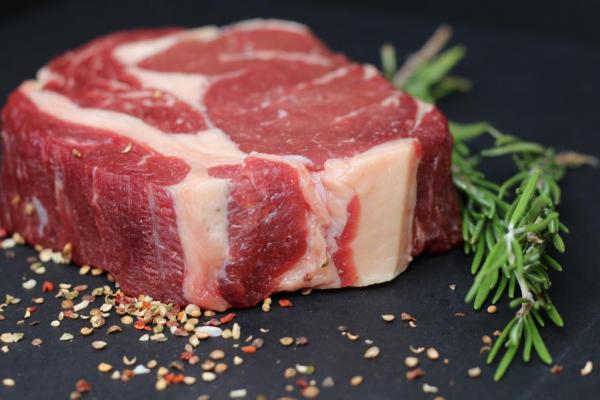By Esmée Hardwick-Slack
According to scientists at the University of Oxford, a red meat tax could prevent around 6,000 deaths in the UK as well as £700m in UK healthcare costs. They say the government should consider imposing a tax on red meats like beef, lamb and pork, in an attempt to reduce consumption.
Recent research has linked eating red meat to an increased risk of heart disease, strokes and diabetes. In 2015, the World Health Organization warned that processed meats, like bacon, sausage and ham, could cause cancer, while unprocessed red meat could also increase your risk.
It’s not just your health that red meat can impact, researchers said meat eaters were also increasing the burden on the health service and the economy, due to a loss of workforce from ill health. There has also been a growth in the awareness that eating red meat has on the environment. With high levels of land and water being used and the carbon emissions that are associated with meat production, cutting down is one of the key ways individuals can help tackle climate change.
Placing taxes on harmful products to reduce consumption isn’t anything new. The government has already taxed sugar, alcohol and tobacco. With growing evidence of the health and environmental damage caused through red meat, experts now believe a “sin tax” on these meats is inevitable.
The research looked at the level of tax needed to reflect the healthcare costs incurred when people eat red meat. It found that a 20% tax on unprocessed red meat and a 110% tax on the more harmful processed products across higher-income countries, with lower taxes in less wealthy nations, would cut annual deaths by 220,000 and raise £130bn.
But will it work? Earlier this year the government introduced the sugar tax on soft drinks, meaning manufacturers have to pay a levy on high-sugar drinks. This has had an effect with some brands reducing the sugar content of their drinks. However, whether it has meant consumers are buying less sugary drinks remains to be seen.
One example of financial incentives changing behaviour is the 5p plastic bag charge. The number of plastic bags handed out in England drastically decreasing with 13 billion plastic bags being taken out of circulation in the past 2 years.
Researcher, Rob Bailey from Chatham House Think Tank has said: “The recent sugar tax has shown the UK Government’s willingness to tax foods when there is a sound rationale for doing so. I would argue that there are strong grounds for taxing meat. I find it hard to imagine a meat tax will not be implemented within the next decade.”
However, many people don’t agree with the government telling them what to eat. Christopher Snowden, from the Institute of Economic Affairs, said taxing food was “the next battleground for the nanny state”. He also argued that it’s absurd to raise the cost of living through taxing meat. There is concern that the tax targets food bought by lower income households.
What are your thoughts on taxing red meat? Do you think it will reduce the amount we consume? Let us know in the comments or have your say on our Twitter page.
Related Articles:
Food and drink exports grow to £22bn



